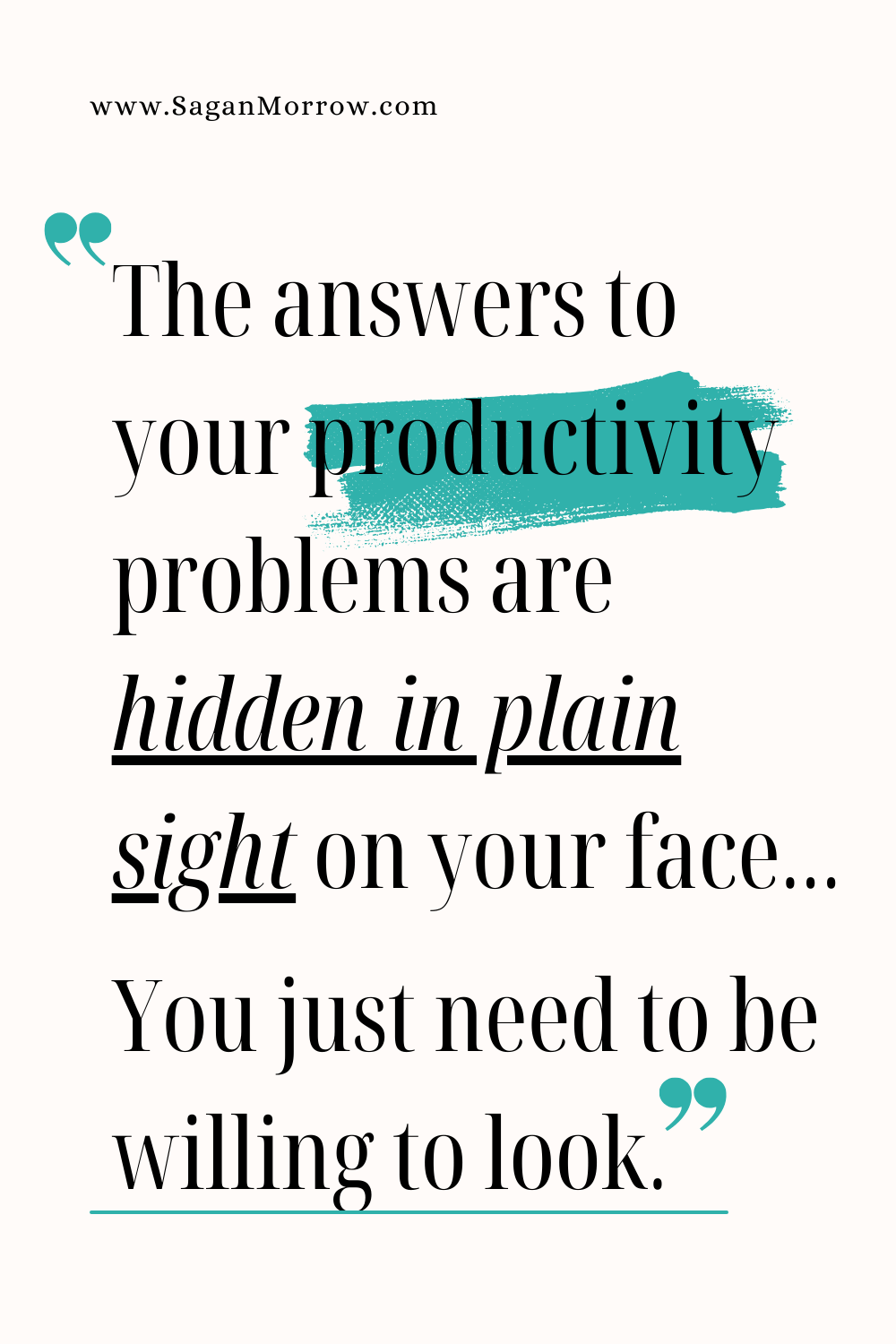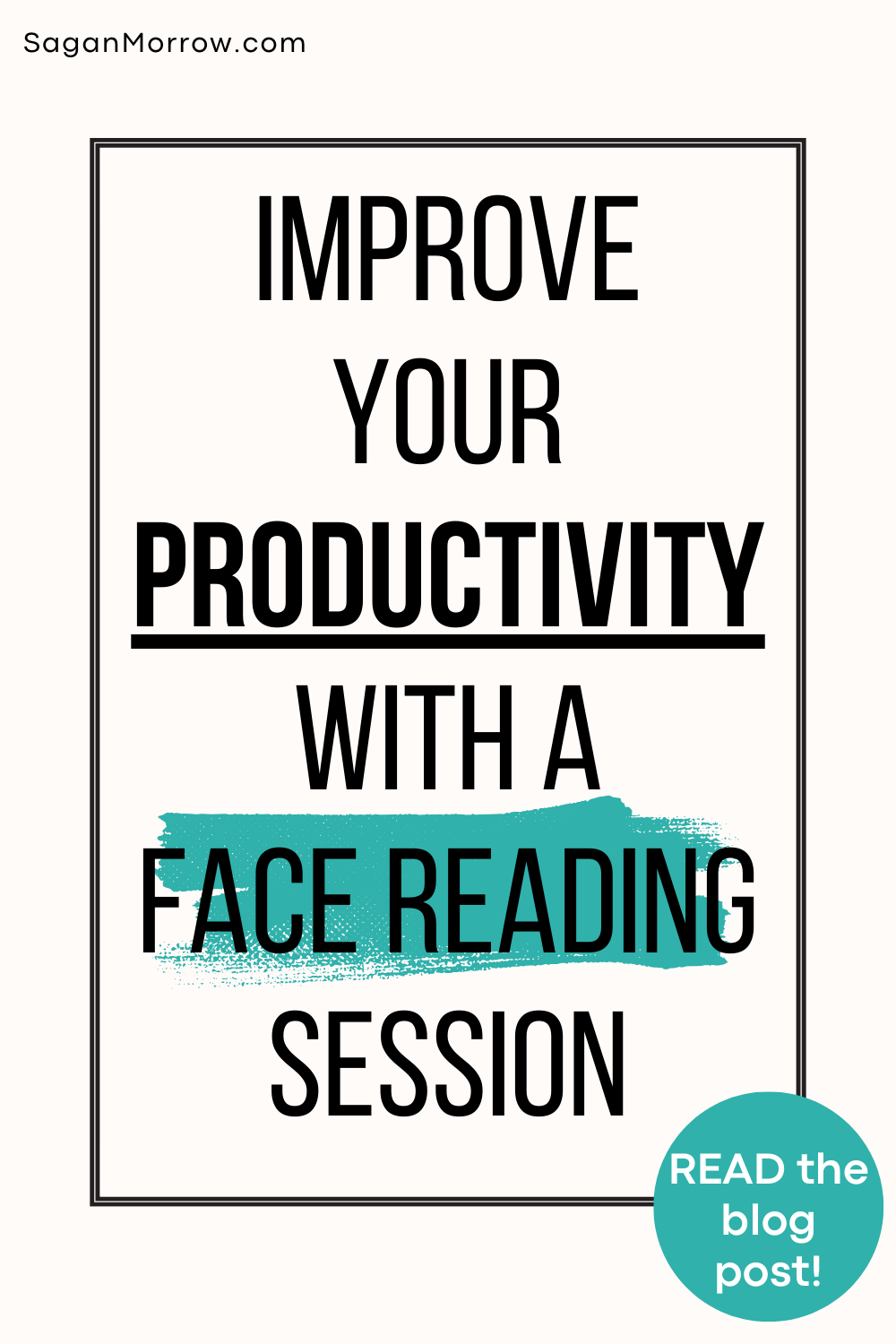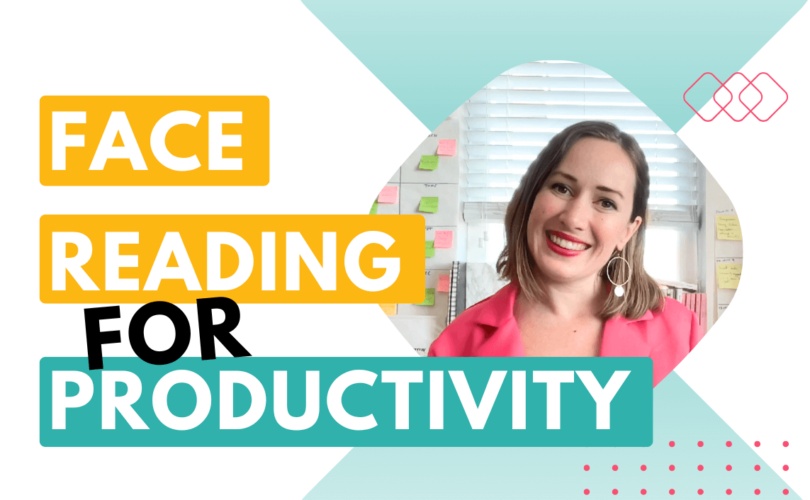Did you know that you can use Face Reading for improving your productivity skills? Face Reading was used centuries ago in Classical Chinese Medicine as a diagnostic tool, and it can help with everything from matchmaking to business success to helping you identify your “Golden Path” in life… and it can help you to improve productivity!
As a Personal Fulfillment & Solopreneur Productivity Coach — and an alumnus of the Lotus Institute Master Face Reading program, where I learned under the teachings of world-renowned Lillian Bridges — I find that Face Reading is a fascinating and powerful supplement to the work I do with my clients.
Watch the Face Reading for Productivity MASTERCLASS:
This class was taught as the Face Reading for Productivity masterclass for the Solopreneur Diary Entries: Premium Edition.
Show notes:
- 0:00 Intro to this class.
- 1:28 A brief overview of Face Reading in Classical Chinese Medicine (as taught to Sagan from the Lotus Institute Master Face Reading Program)
- 3:06 The 5 elements in Classical Chinese Medicine and how it shows up on your face.
- 5:30 How the 3 Treasures (Qi, Jing, and Shen) show up on your face — with an example of how this can be seen in a coaching session.
- 6:13 The topographical map of your face.
- 7:27 The lines on your face.
- 9:07 A few other areas that a Face Reader might explore in a Face Reading session.
- 11:47 The different ways you can USE Face Reading as a tool in your life (the practical application of it)
- 14:51 How Face Reading works in conjunction with improving your productivity skills.
- 18:01 Work vs rest in anti-hustle productivity (and your relationship to toxic hustle culture), and the way it shows up on your face.
- 26:21 FIVE EXAMPLES for how to see your productivity abilities on your face.
- 27:33 Water element and productivity.
- 32:53 Wood element and productivity.
- 36:38 Fire element and productivity.
- 42:05 Earth element and productivity.
- 43:42 Metal element and productivity.
- 48:50 Five questions about productivity — and where it shows up on your face.
- 49:02 “Why am I always struggling to meet deadlines?”
- 51:59 “How can I get better at time management?”
- 1:00:15 “Why does THAT person have so much more energy than me?”
- 1:04:00 “How can I be a better team leader?”
- 1:09:37 “Why is it so hard for me to prioritize my own tasks over what someone else wants from me — and what can I do to break that cycle?”
- 1:15:03 WRAP UP — Where to go from here to learn more about Face Reading for productivity in your own face!
How can you use Face Reading for productivity?
Your face has some very cool information in it!
For example, your face can tell you about…
- How you deal with time management, schedules, and deadlines (especially helpful if you're a cozy entrepreneur).
- Your leadership abilities.
- Whether you work best independently or in a team.
- Your decision-making skills.
- How much rest vs action you require for personal fulfillment and maximum efficiency.
- …and more!
Face Reading explores many aspects of your face — such as the strength of features on your face, the lines on your face, the way your face has changed over the years, etc.
Everything from the prominence of your nose and eyebrows to lines around your mouth to the shape of your face (and more) provides information about your relationship to, and experience with, productivity.
What is your most prominent feature? Do you have a square jaw, a high forehead, large eyes, wide mouth, big ears? How is the clarity of your skin? Are the two sides of your face symmetrical or quite a bit different? How close are your ears set to your head?
All of those things have meaning behind them and can give you valuable information about your personality and the way you interact with others.

So if you’ve ever wondered things like:
“Why am I always struggling to meet deadlines?”
“How can I get better at time management in my lifestyle business, and experience true time freedom?”
“Why does THAT solopreneur have so much more energy than me?”
“How can I be a better team leader or community organizer?”
“Why is it so hard for me to prioritize my own tasks over what someone else wants from me — and what can I do to break that cycle?”
…the answers are in your face!
Your approach to solopreneur productivity doesn't need to be so difficult or frustrating, and you don't need to force yourself to use wrong-for-you time management techniques or toxic productivity methods.
Want to be more productive, in a way that suits YOU as a unique individual?
Let’s book a Face Reading session:
As a Life Coach for Solopreneurs, I specialize in creating anti-hustle productivity strategies, developing intrapersonal skills, and improving personal fulfillment in your business and life.

